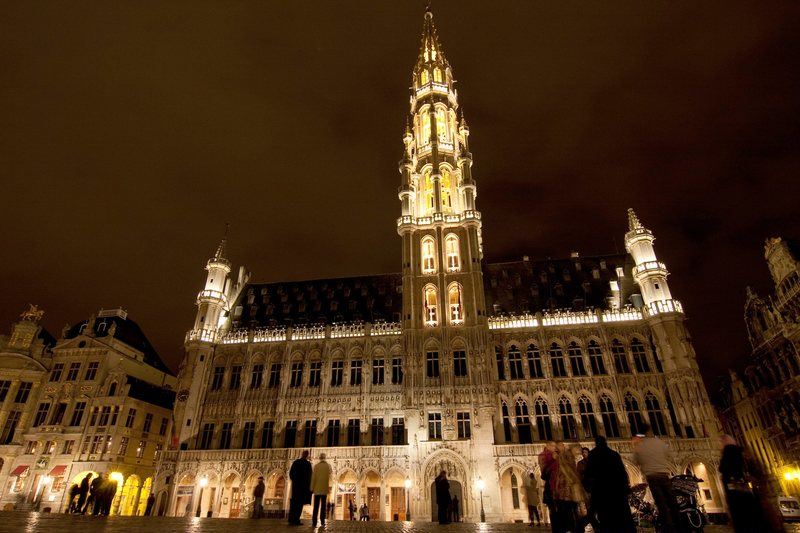At night, temperatures in Brussels are approximately 10 degrees higher than in the countryside, according to measurements by VLINDER, a research project of the University of Ghent, that maps local temperature differences.
In the night from Thursday to Friday, it was over 26 degrees in the City of Brussels at 01:20 AM. In the municipality of Asse, out of Brussels, it had already cooled down to 16 degrees.
"That is the biggest difference we have measured so far, but night-time temperature differences of six to seven degrees between the city and the countryside are very normal during a heatwave," Steven Caluwaerts, project manager for VLINDER at UGent, told Bruzz.
Measurement points have also been installed in and around the cities of Ghent, Antwerp, Hasselt and Mechelen, among others, but the temperature difference between city and countryside is greatest in Brussels.
"That is not surprising: Brussels is the largest city, a lot of it is paved, it has a lot of high-rise buildings and has no flowing river or another large water surface," said Caluwaerts.
"Stone and concrete are materials that absorb a great deal of heat; at night, buildings cool down again by emitting heat radiation. However, this radiation is very difficult to escape in an urban environment and is partly reabsorbed by other buildings. This keeps the temperature in the city high," said Caluwaerts.
The second Brussels measuring point at the Parc de Bruxelles proves that greenery, like water, can provide cooling. Temperatures at night are invariably lower during a heatwave.
Related News
- How to (not) wear a face mask during the heatwave
- Belgian heat record broken with 34.3 degrees for an August 8
- Heatwave: code red declared for most of Belgium
During the day, temperature differences between the city and the countryside are limited. It can even be cooler in the city, as there is often more shade, but the city does not cool down as much.
"Those high night-time minima play a role in the total heat load you experience during a heatwave," said Caluwaerts. "We measure the highest heat values during the day, but the heat in Brussels is also partly maintained at night, making it more difficult for Brussels residents to recover," he added.
This poses additional health risks, which policymakers should be aware of, according to Caluwaerts.
"It is up to local governments not to make heat spots in cities even bigger than they already are. Softening the city, for example, is always better than hardening it. The effect may have nothing to do with global warming, but now that we have to endure more and more heatwaves, that effect is becoming more and more relevant," said Caluwaerts.
Inhabitants of Brussels should open their windows between 6:00 AM and 8:00 AM, which is better than in the evening.
"That is when it is coolest outside. If you know that it was still 26 degrees in the city on the night from Friday to Saturday at 1:30 AM, it is probably cooler inside than outside at that time."
The real-time temperature measurements of the VLINDER project can be viewed here.
Maïthé Chini
The Brussels Times

